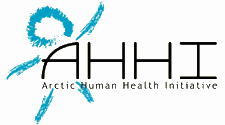Project Listing
Changing Environment & Human Health
|
Title: The Inuit Diet and Health Study: A study of the impact of diet on health and disease among the Inuit and Yupik of the circumpolar North |
Summary of Activity
This baseline survey will be carried out among people aged 18 and over with Inuit/Yupik ancestry from across the Alaskan, Canadian, Greenlandic North . It aims to recruit 12,000 participants. During a 4-5 hour visit, participants will be interviewed, participate to a medical and para clinical examination and have a blood sample drawn. The study will focus on diet but include other lifestyle factors that are known to have an effect on chronic disease status, such as smoking, contaminant exposure, physical exercise, and a number of social and cultural factors. .This will give a cross-sectional description of the associations between the environment, living conditions, life style, risk factors and existing disease status among these populations. The cross sectional baseline survey will provide us with a solid base upon which to asses the positive and negative effects of current northern diets however will not be able to delineate cause- effect relationships between these factors. Inuit and Yupik populations live scattered over a vast area and in many cases are located in difficult to access villages. For many of the smaller communities, especially in Greenland and Canada, the most cost-effective strategy for travel to multiple coastal communities is a ship. We will used the NGCC Amundsen throughout our research program ArcticNet (www.arcticnet .ulaval.ca), a research ice-breaker with all the necessary laboratory and examination facilities and we will tour the coast of West Greenland in 2006 and the Eastern Canadian Arctic in Fall 2007 and repeat the work in the Beaufort Sea in 2008 (Alaska, Inuvik region). The possibilities for inviting media personnel and artists to join the expedition will be considered in order to facilitate cultural exchange between the communities and countries visited. We also plan major activities for training Inuit students from the four countries with the collaboration of our Nasivvik Center (www.nasivvik.ulaval.ca). For more information, please see our pilot study in 2004 in done Nunavik (www.qanuippitaa.com).
The second cohort is a child development cohort on going in Greenland and Nunavik. Our goal is to follow up 300 children from birth to teen age. Child will be examined tree time at 1, 10 and 14 year of age. The first evaluation was completed in 2002-2003. The major risk factors are diet, contaminants (mercury, PCBs and other endocrine disruptors), social and life style variables. The assessment is psychological and neurological. A genetic (gene-environment interactions) component will be added as well as neurological testing. For the follow up study we need a clinical mobile field station for child evaluation.
Contacts:
Lead Contact
Prof Eric Dewailly
Laval University
Unité de Recherche en santé publique, 945 rue Wolfe, Québec, G1V 5B3 Canada
G1V 5B3
Canada
Tel: +1 418 650 5115 Ext: 5240
Mobile: N/A
Fax: +1 418 654 2148
Email: eric.dewailly@inspq.qc.ca
Second Contact
Prof Peter Bjerregaard
Danish Institute of Public Health, Denmark
Svanemollevej 25 , 2100 Kobenhavn O
2100
Denmark
Tel: + 45 39 20 77 77
Mobile: N/A
Fax: + 45 39 20 80 10
Email: p.bjerregaard@dadlnet.dk
© 2006, Arctic Human Health Initiatives
All rights reserved.
